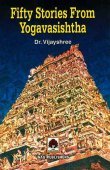Hate, Hāte, Hāṭe: 2 definitions
Introduction:
Hate means something in Hinduism, Sanskrit. If you want to know the exact meaning, history, etymology or English translation of this term then check out the descriptions on this page. Add your comment or reference to a book if you want to contribute to this summary article.
Images (photo gallery)
In Hinduism
Shaktism (Shakta philosophy)
Source: ORA: Amanaska (king of all yogas): (shaktism)Hate or Haters (of a particular deity) are denoted by the Sanskrit term Dveṣa, according to the 17th century Kaulagajamardana (“crushing the Kaula elephant”) authored by Kāśīnātha or Kṛṣṇānandācala.—Accordingly, [as Īśvara said to Pārvatī]: “Listen, O Pārvatī, I shall give a critique of the Pāṣaṇḍas. Knowing this, a wise man is not defeated by them. [...] He who wears ash from the cremation ground and delights in wine and flesh; he who performs such [rites] as bathing and the junctures for [mere] worldly rewards; and he who is the vilest [of them all,] having become a hater (dveṣa) of Viṣṇu, destroys everything; [all of them] are called Pāṣaṇḍas. [Now,] my dear, hear about the Kāpālika. [...]”

Shakta (शाक्त, śākta) or Shaktism (śāktism) represents a tradition of Hinduism where the Goddess (Devi) is revered and worshipped. Shakta literature includes a range of scriptures, including various Agamas and Tantras, although its roots may be traced back to the Vedas.
Languages of India and abroad
Kannada-English dictionary
Source: Alar: Kannada-English corpusHāte (ಹಾತೆ):—
1) [noun] any of various families of lepidopteran insects active in the daytime, having a sucking mouthpart, slender body, ropelike, knobbed antennae, and four broad, usu. brightly coloured, membranous wings; a butter-fly.
2) [noun] any of winged insects, as coackroach, fly, etc.
3) [noun] any winged insect attracted by a light.
Kannada is a Dravidian language (as opposed to the Indo-European language family) mainly spoken in the southwestern region of India.
See also (Relevant definitions)
Starts with (+4): Haate-bancharo, Haate-taan, Hate Natured, Hate Rooted Consciousness, Hate-bancaro, Hate-barma, Hate-kampoja, Hate-matha, Hate-presa, Hate-tana, Hatedi, Hatehala, Hatehulu, Hatekara, Hatekshana, Hatela, Hatemalo, Hatena, Hatenca, Hatendriya.
Ends with (+263): Abaddhate, Abhimukhate, Abhinivishate, Abhirochate, Abhraghate, Abhramkashate, Adakshate, Adeshate, Adhibhashate, Adhridhate, Adhyakshate, Adhyeshate, Agudhate, Ajjhate, Akankshate, Akshate, Akshubdhate, Amanushate, Amdhate, Amgikararhate.
Full-text (+439): Vidvishta, Pradvish, Dveshtri, Dvishta, Dvesha, Vidveshin, Dvis, Dveshana, Dveshya, Vidveshana, Vidveshtri, Dveshin, Akshigata, Devanid, Lokavidvishta, Pradveshtri, Vidvish, Purushadveshin, Haate-bancharo, Haate-taan.
Relevant text
Search found 281 books and stories containing Hate, Hāte, Hater, Hating, Hated, Hāṭe, Haate; (plurals include: Hates, Hātes, Haters, Hatings, Hateds, Hāṭes, Haates). You can also click to the full overview containing English textual excerpts. Below are direct links for the most relevant articles:
Dhammapada (Illustrated) (by Ven. Weagoda Sarada Maha Thero)
Verse 42 - The Story of Nanda, the Herdsman < [Chapter 3 - Citta Vagga (Mind)]
Verse 197-199 - The Story of the Pacification of the Relatives of the Buddha < [Chapter 15 - Sukha Vagga (Happiness)]
Verse 419-420 - The Story of the Skull-Tapper < [Chapter 26 - Brāhmaṇa Vagga (The Brāhmaṇa)]
Bharadvaja-srauta-sutra (by C. G. Kashikar)
Mahabharata (English) (by Kisari Mohan Ganguli)
Section CCCXLVII < [Mokshadharma Parva]
Section CLIX < [Apaddharmanusasana Parva]
Section XL (Bhagavad Gita Chapter XVI) < [Bhagavat-Gita Parva]
History of Indian Medicine (and Ayurveda) (by Shree Gulabkunverba Ayurvedic Society)
Chapter 6 - The Oath of Initiation < [Part 2-3 - Medical Institutions in Ancient India]
Chapter 13 - Regulations of Society and State Regarding Treatment < [Part 4 - Some Aspects of Life in Caraka’s Times]
Chapter 12 - Examination, Registration and Convocation < [Part 2-3 - Medical Institutions in Ancient India]
Saying 101 - We Should Hate Our Family And Love Our True Family
Saying 43 - Disciples Should Recognize Jesus In His Sayings
Satapatha-brahmana (by Julius Eggeling)
Kāṇḍa I, adhyāya 5, brāhmaṇa 4 < [First Kāṇḍa]
Kāṇḍa VI, adhyāya 6, brāhmaṇa 3 < [Sixth Kāṇḍa]
Kāṇḍa I, adhyāya 9, brāhmaṇa 3 < [First Kāṇḍa]
Related products

